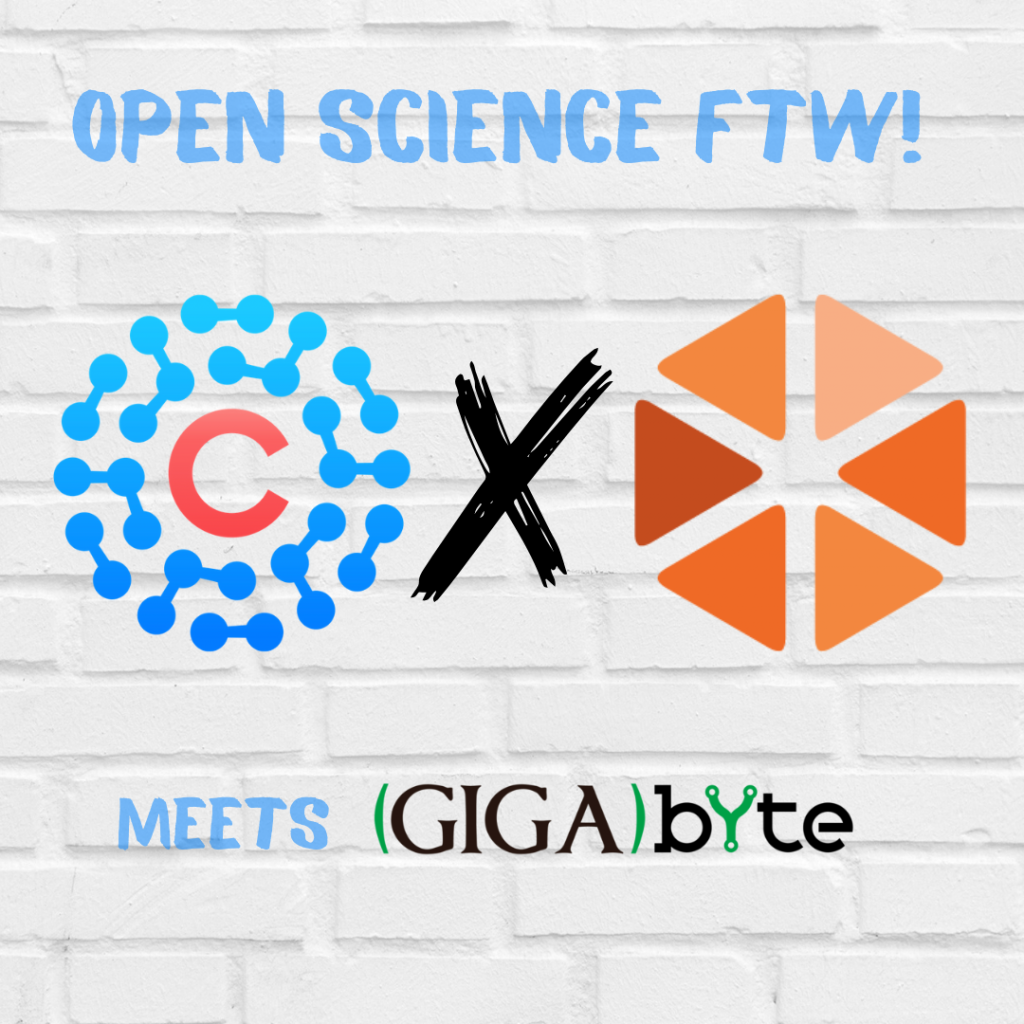Crossing the Open Science Streams: Cassyni X Sciety (and GigaByte) FTW

Innovation + Integration = Cassyni X Sciety
As an Open Science publisher, we’ve written extensively on our aims to think and act wider to better address the UNESCO Open Science Recommendation. Particularly the key pillars of “Open Engagement of Societal Actors” and “Open Dialogue with other Knowledge systems” where we need to improve the inclusiveness and accessibility of our research by communicating it to a much wider audience.
With these appeals for wider dialogue in science we’ve experimented with video abstracts in our GigaTV youtube channel, as well as teaming up with Cassyni to disseminate scholarly research through more discursive and interactive virtual seminars. Where researchers and reviewer communities dive into the details of a paper, offering critical discussions, insights, and interpretations. In a similar manner, we have also opened up the publication process in our GigaByte journal by linking our mandated open peer reviews and use of preprints by crosslinking and highlighting these links using bioRxiv and Sciety integrations. Sharing these preprint peer reviews (AKA “evaluations”) in Sciety ‘Reviewing Groups’ to enable further discoverability and insight for readers.
These parallel Open Science efforts have now crossed over, with Sciety now integrating video seminars held on Cassyni as part of the paper evaluation history. This Sciety X Cassyni crossover helping enrich the evaluation history of preprints, making it easier for researchers to find valuable insights and trusted perspectives on the emerging research.
This new feature is first showcased on the preprint “Building a community-driven bioinformatics platform to facilitate Cannabis sativa multi-omics research” where the GigaByte author discusses the work in their preprint and paper in a Cassyni-hosted seminar that was organised back in October.
You can read more in the Sciety blog where they explain that integrating video into Sciety brings a fresh dimension to how preprints are reviewed and shared:
- Richer Context: Video discussions provide a nuanced understanding of a preprint that written evaluations may not fully capture.
- Community Engagement: They spotlight the collaborative effort of review communities, showcasing the dialogue that builds trust and transparency in early-stage research.
- Discoverability and Credit: Linking each seminar to a DOI ensures these contributions are easily discoverable and citable, giving proper recognition to the reviewers and communities involved.
For researchers reading preprints, this means a more dynamic way to engage with the science, hear from experts, and decide what to explore further. For communities and reviewers, it’s a way to amplify their efforts, make their work more visible, and demonstrate their commitment to rigorous and transparent evaluation practices.
Further showcasing the many external tools and integrations we use in GigaByte to open up our papers, the example used here also includes a very detailed protocols.io protocol that is embedded as figure 6 in the paper. Protocols.io being another Open Science tool we’ve been working into our publication workflow since 2016 that allows authors to take advantage of their open access repository of scientific methods and a collaborative protocol-centred platform. We promote the Data Citation Principles, and as Cassyni, protocols.io and bioRxiv all provide DOIs the different Research Objects (and any versions of them) can all be independently cited, linked and tracked (see the References below).
Opening up more parts of the research process, and integrating tools that make this more accessible and easy to comprehend helps build trust and engagement at a critical time for science. Collaborations and connections such of these are easy wins for Open Science, improving Open Science workflows and uptake without additional effort for the researcher. At GigaScience Press we will continue to experiment with new ways to further open up our published research, and you can see any future Cassyni X Sciety crossover papers by following our Cassyni and Sciety feeds.
https://cassyni.com/s/gigascience-press
https://sciety.org/groups/gigabyte
References
Mansueto L et al., Building a community-driven bioinformatics platform to facilitate Cannabis sativa multi-omics research, GigaByte 2024 https://doi.org/10.46471/gigabyte.137
Mansueto L et al., Building a community-driven bioinformatics platform to facilitate Cannabis sativa multi-omics research. bioRxiv 2024.10.02.616368; https://doi.org/10.1101/2024.10.02.616368
L Mansueto et al. ICGRC Portal Tripal Data Generation and Setup. protocols.io 2024. https://dx.doi.org/10.17504/protocols.io.n2bvj3nz5lk5/v3
L Mansueto et al. (2024, October 24), New bioinformatics resources from The International Cannabis Genome Research Consortium. Cassyni 2024. https://doi.org/10.52843/cassyni.y1p61f